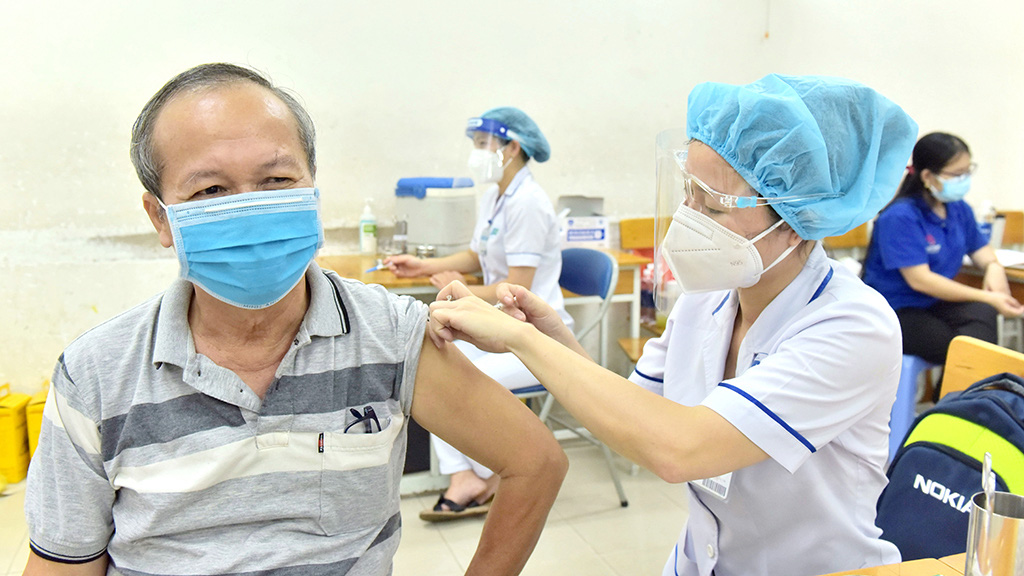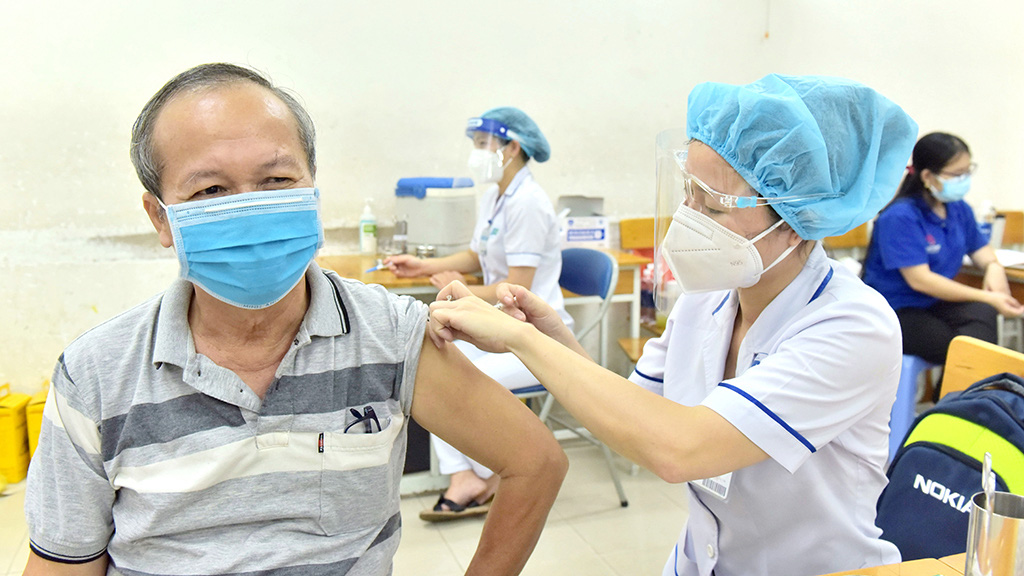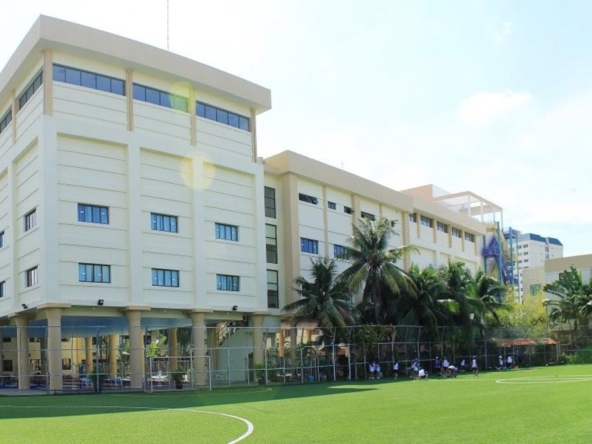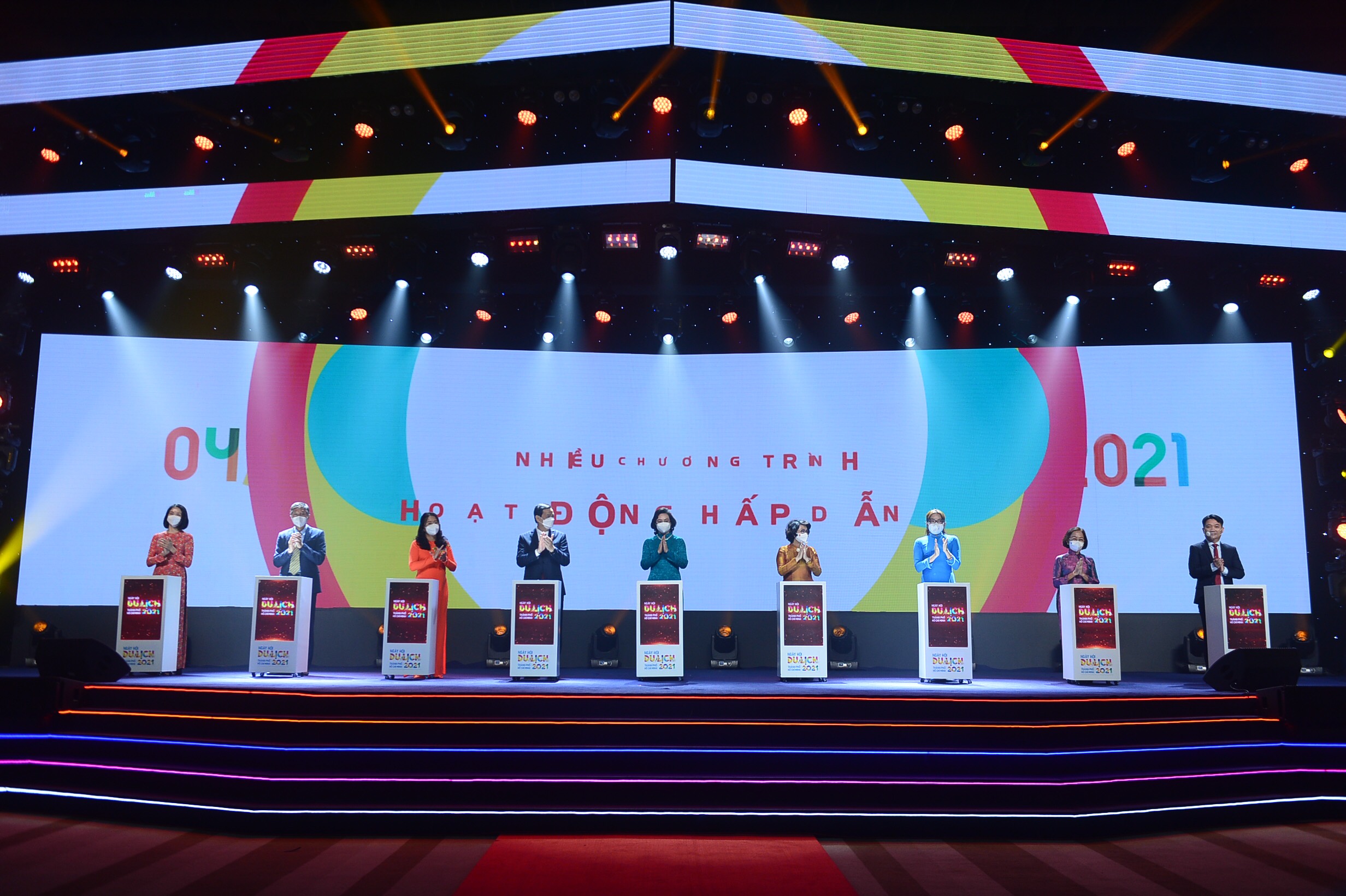The city’s fifth inoculation campaign will last for two to three weeks

Ho Chi Minh City authorities are planning to administer 1.1 million doses of COVID-19 vaccine in its upcoming vaccination program, which is expected to last for two to three weeks.
The municipal Department of Health convened a teleconference with local healthcare facilities on Sunday afternoon to discuss the organization of the city’s fifth inoculation campaign.
The city is expected to be allocated 1.1 million COVID-19 vaccine shots within this month, including one million doses of Moderna’s vaccine supplied by the U.S. via the COVAX scheme and 100,000 AstraZeneca jabs donated by Japan.
These shots will be administered in the coming inoculation, which will last two to three weeks.
Local authorities will establish 630 vaccination sites at 312 district-level medical centers.
Each district will have another inoculation site operated by corresponding authorities.
About 120 people will receive the vaccine shots at each site on a daily basis.
In order to prevent gatherings of large crowds at these locations, the vaccines will be administered from 8:00 am to 1:00 pm and from 3:00 pm to 8:00 pm every day.
The campaign will prioritize vulnerable citizens and residents in areas at high risk, as well as those belonging to target groups designated by the Ministry of Health.
During the previous four vaccination campaigns, Ho Chi Minh City had given more than 943,200 doses, with over 41,800 people having completed the two-dose regimen.
Vietnam had documented 31,590 COVID-19 cases as of Monday afternoon, with 9,275 recoveries and 123 deaths, according to the Ministry of Health.
The country has recorded 28,086 local infections in 58 provinces and cities, including 14,435 cases in Ho Chi Minh City, since a new outbreak began on April 27.
More than four million vaccine doses have been administered in Vietnam since inoculation began on March 8, with 277,447 people fully vaccinated.
The government set a target of immunizing two-thirds of a population of nearly 98 million people against COVID-19 by the first quarter of next year.







